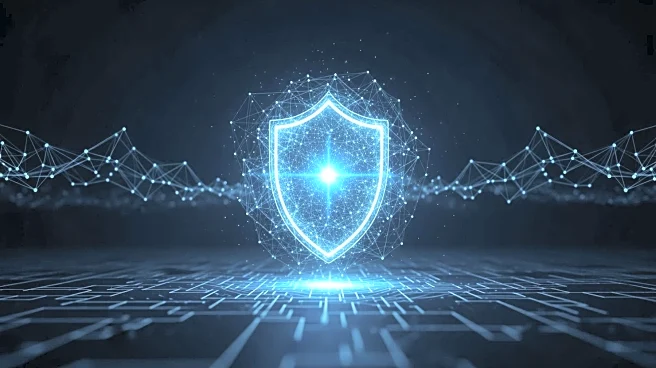What's Happening?
A group of cybersecurity experts, hackers, and radio hobbyists have formed the Internet Resiliency Club (IRC) to develop plans for restoring internet connectivity in the event of a catastrophic failure.
Recent outages in Spain and Portugal highlighted the vulnerability of the internet, which is crucial for global banking, military operations, and utilities. The IRC, inspired by the resilience shown in Ukraine, is stress-testing technology that could help reboot the internet, focusing on local solutions like mesh networks using Meshtastic devices. These devices can send short messages over radio waves and are powered by solar panels, making them viable in power outages.
Why It's Important?
The internet's fragility poses a significant risk to global infrastructure, and the lack of official plans for recovery in case of a collapse is concerning. The IRC's efforts to create a grassroots solution could be vital in ensuring continuity of essential services during outages. Their work underscores the importance of cybersecurity and resilience planning, especially as threats from climate change, political tensions, and cyberattacks increase. The initiative could inspire similar groups worldwide, fostering a network of local solutions that collectively enhance global internet resilience.
What's Next?
The IRC plans to continue testing and refining their technology, potentially expanding their efforts to other cities. They aim to create a reliable communication network that can operate independently of traditional internet services. As they progress, they may collaborate with other experts and organizations to share knowledge and resources, strengthening their plans. The success of their initiative could lead to broader adoption of mesh networks and similar technologies, influencing how communities prepare for internet outages.
Beyond the Headlines
The IRC's work highlights the growing need for decentralized solutions in cybersecurity and infrastructure resilience. Their approach could lead to a shift in how societies prepare for technological failures, emphasizing local self-sufficiency and community-driven initiatives. This development may also prompt governments to reconsider their cybersecurity strategies and invest in more transparent and robust contingency plans.









